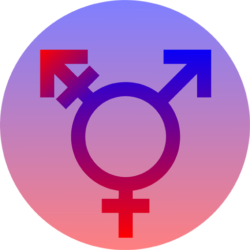Norge fremsatte på FN’s menneskerettigheds rådsforsamling i Geneve den 1. december 2006 en erklæringen støttet af 54 lande, herunder Danmark, om krænkelse af LGBT personers menneskerettigheder, især vedrørende seksuel orientering og kønsidentitet.
Erklæringen gengives på engelsk herunder.
3rd SESSION OF THE HUMAN RIGHTS COUNCIL
JOINT STATEMENT
H.E. WEGGER CHR. STRØMMEN
AMBASSADOR
PERMANENT REPRESENTATIVE OF NORWAY TO THE
UNITED NATIONS OFFICE AND OTHER INTERNATIONAL
ORGANIZATIONS IN GENEVA
Geneva, December 1, 2006
I have the honour to make this statement on human rights violations based on sexual orientation and gender identity on behalf of the following 54 States, including 18 members of the Human Rights Council:
Albania, Andorra, Argentina, Australia, Austria, Belgium, Bosnia and Herzegovina, Brazil, Bulgaria, Canada, Chile, Croatia, Cyprus, Czech Republic, Denmark, Estonia, Finland, France, Germany, Greece, Guatemala, Hungary, Iceland, Ireland, Italy, Latvia, Liechtenstein, Lithuania, Luxembourg, Malta, Mexico, Montenegro, Netherlands, New Zealand, Panama, Peru, Poland, Portugal, the former Yugoslav republic of Macedonia, the Republic of Korea, the Republic of Moldova, Romania, Serbia, Spain, Slovakia, Slovenia, Sweden, Switzerland, Timor-Leste, Ukraine, the United Kingdom, the United States of America, Uruguay, and my own country Norway.
- At its recent session, the Human Rights Council received extensive evidence of human rights violations based on sexual orientation and gender identity, including deprivation of the rights to life, freedom from violence and torture.
- We commend the attention paid to these issues by the Special Procedures, treaty bodies and civil society. We call upon all Special Procedures and treaty bodies to continue to integrate consideration of human rights violations based on sexual orientation and gender identity within their relevant mandates.
- We express deep concern at these ongoing human rights violations. The principles of universality and non-discrimination require that these issues be addressed. We therefore urge the Human Rights Council to pay due attention to human rights violations based on sexual orientation and gender identity, and request the President of the Council to provide an opportunity, at an appropriate future session of the Council, for a discussion of these important human rights issues.
* * *
Background:
- Norway will be delivering a short oral statement at the United Nations Human Rights Council recognizing human rights violations based on sexual orientation and gender identity. Norway is seeking to deliver the statement on behalf of as many States from different regions as possible.
- Numerous UN Special Procedures have identified violations of the human rights of lesbian, gay, bisexual and transgender persons, including use of the death penalty, torture, police harassment, violence, rape, beatings and disappearances. At the second session of the Council, a Member State defended the death penalty by stoning for homosexuality. Treaty bodies have affirmed the application of international legal protections to those who are lesbian, gay, bisexual and transgender.
- The Norwegian statement deals only with the most severe human rights abuses, such as violence, torture and death, directed against people because of their sexual orientation and gender identity. It is not a formal decision or resolution, and will not be subject to a vote. It creates no new rights, but simply affirms the application of basic human rights standards to those who are lesbian, gay, bisexual and transgender.
The statement is consistent with comments by UN High Commissioner for Human Rights Louise Arbour, who affirmed in a keynote speech on sexual orientation issues at a Montreal Human Rights Conference on 26 July 2006:
“Violence against LGBT (lesbian, gay, bisexual and transgender) persons is frequently unreported, undocumented and goes ultimately unpunished Excluding LGBT individuals from these protections clearly violates international human rights law as well as the common standards of humanity that define us all.” - The UN Special Rapporteur on Health has also emphasized the importance of addressing human rights violations based on sexual orientation as part of HIV education and prevention efforts.
- The statement has already attracted broad support from more than 40 States across 4 regions. In view of the extensive rights violations identified by the Special Procedures and treaty bodies, we hope you will join the increasing number of States expressing support for these important human rights issues.
* * *
Erklæringen hos ARC International.
